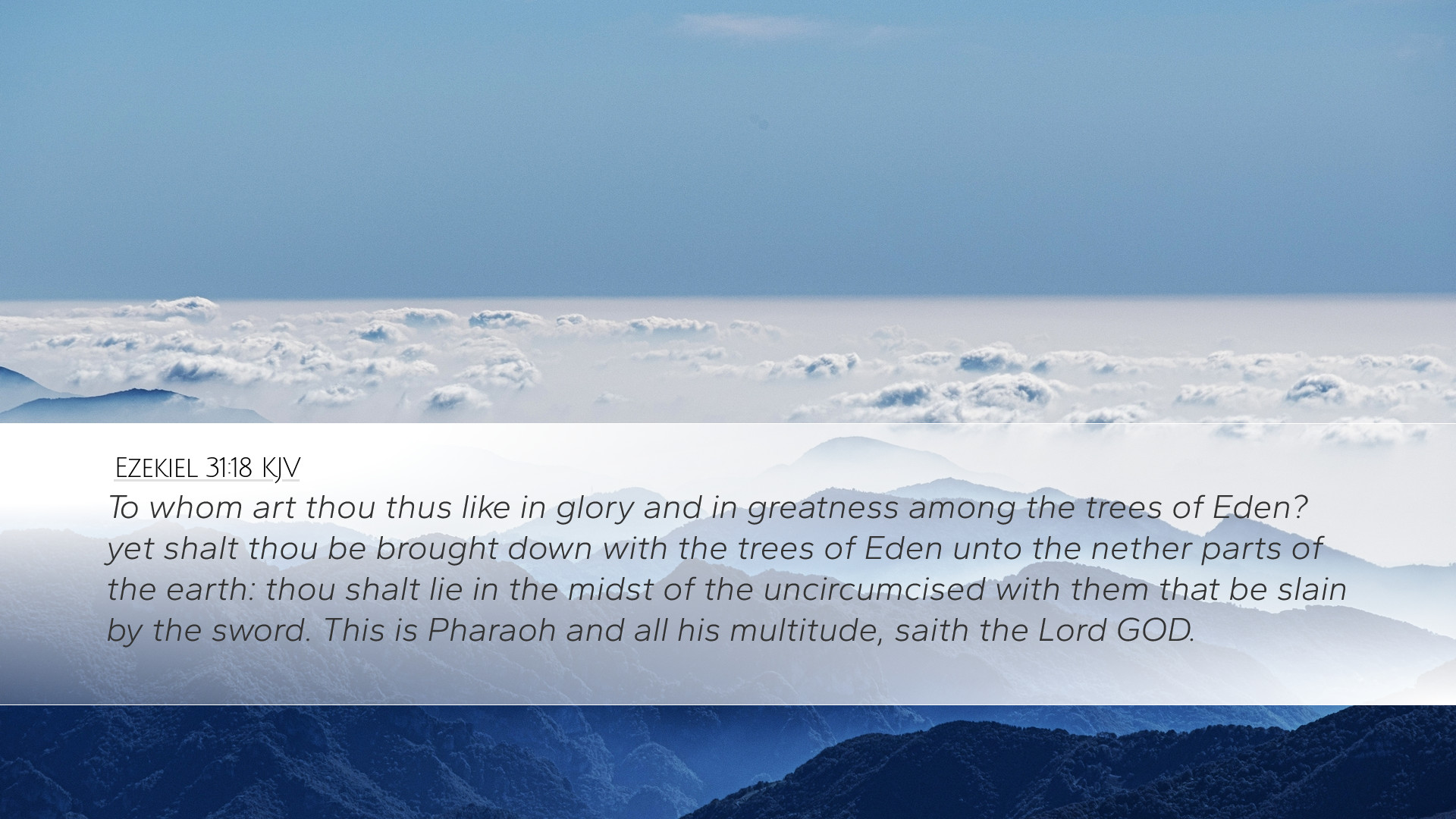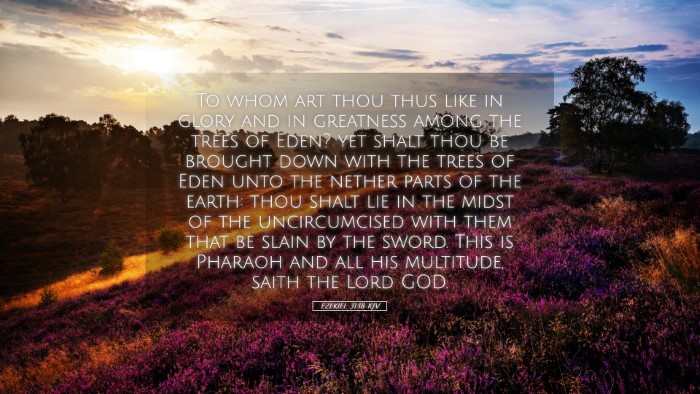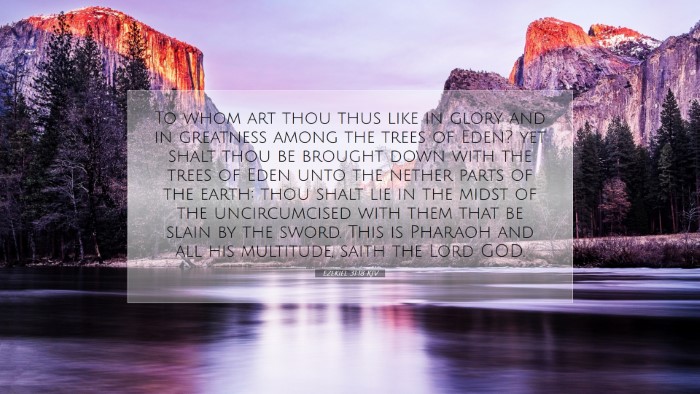Ezekiel 31:18 - Commentary Overview
Ezekiel 31:18 presents a vivid metaphorical depiction of the fall of Assyria, likened to a magnificent tree that, despite its grandeur, meets a grim end. This verse serves as a reminder of the transient nature of earthly power and glory, and it is rich in theological implications. Below is a synthesis of thoughts from well-known public domain commentaries.
Contextual Background
The chapter contains a lamentation directed towards Egypt and is part of a larger prophetic discourse by Ezekiel concerning fallen great nations, with Assyria as a focal point. The metaphor of a tree illustrates the pride and subsequent downfall of nations, ensuring that such lessons from history resonate through the ages.
Verse Text
Ezekiel 31:18 (KJV): "To whom art thou thus like in glory and in greatness among the trees of Eden? Yet shalt thou be brought down with the trees of Eden unto the nether parts of the earth: thou shalt lie in the midst of the uncircumcised, with them that be slain by the sword."
Analysis of Key Elements
- The Tree Imagery: The tree symbolizes the might and splendor of Assyria, characterized by its height and lushness, drawing comparisons to the trees of Eden, which denotes perfection and majesty.
- Comparison to Other Nations: The rhetorical question posed highlights the uniqueness of Assyria's glory but serves ultimately to emphasize its inevitable downfall.
- Humiliation and Mortality: The anticipation of being brought down 'unto the nether parts of the earth' indicates a stark transition from exaltation to humiliation, pointing to the theological principle that pride precedes a fall.
Insights from Matthew Henry
Matthew Henry emphasizes the providential hand of God in the downfall of kingdoms. He notes that while mighty empires may appear invincible, they ultimately bow before divine judgment. The imagery of the tree draws parallels to the 'first man' whose pride led to downfall. Henry posits that God's judgments often come as a surprise to those who revel in their prosperity, which resonates with the fate of Assyria.
Insights from Albert Barnes
Albert Barnes points to the fact that this passage serves as a solemn warning not only to Egypt and Assyria but to all nations that disregard God’s sovereignty. He highlights the reference to 'the uncircumcised' as a symbolic representation of those not in covenant with God, thus illustrating the ultimate fate of those outside divine grace. Barnes articulates the emotional weight of the text, which blends mourning for prideful empires with the clarity of their divine judgment.
Insights from Adam Clarke
Adam Clarke provides an in-depth examination of the cultural and historical context regarding the greatness of Assyria and its perceived immortality. Clarke discusses how this verse relates to the judgments pronounced upon nations that turn away from God, emphasizing that all human glory is fleeting. Clarke also addresses the psychological aspect of nations' pride leading to their downfall, which serves as a warning to contemporary societies.
Theological Implications
- Divine Sovereignty: The passage insists on God's supreme authority over human affairs, showcasing His ability to raise and cast down nations.
- Mortality of Nations: There is a universal principle illustrated here: nations and individuals are mortal and subject to divine judgment.
- Call to Humility: Believers are reminded to maintain humility and dependence on God, steering clear of the pride that leads to destruction.
Practical Applications
- Leaders and Rulers: Modern-day leaders should take heed of the truths in this verse, recognizing that power is temporary and carries the responsibility of reliance on God's principles.
- Church Reflection: The church is prompted to reflect on its own standing before God, ensuring it doesn't succumb to the pride and self-reliance evident in fallen nations.
- Personal Humility: Individuals are encouraged to cultivate a posture of humility before God, understanding their own vulnerabilities.
Conclusion
Ezekiel 31:18 serves as a poignant reminder of the transient nature of human glory and the ultimate authority of God in the affairs of nations. It calls for self-reflection both corporately as a body of believers and individually, challenging all to acknowledge God's sovereignty and to remain humble. The insights from Matthew Henry, Albert Barnes, and Adam Clarke provide a rich tapestry of understanding that continues to resonate with theologians, pastors, and scholars today.


